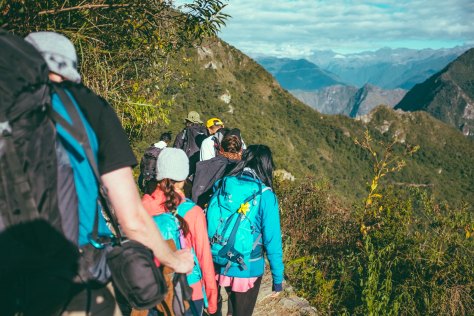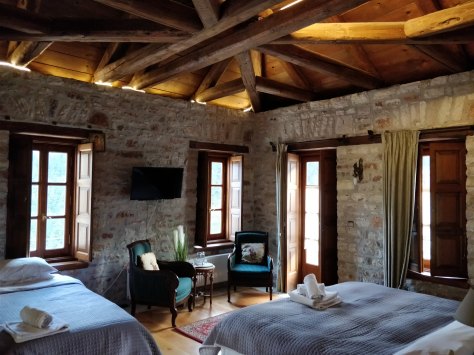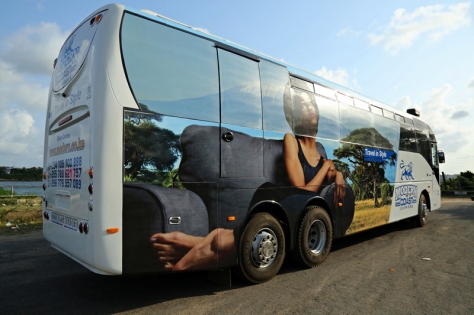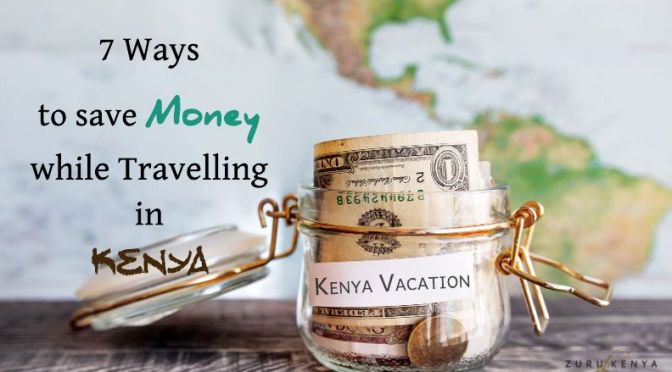Peak season is fast approaching. If you haven’t booked yet, Dennis Carruthers is happy to let you in on tips to help you navigate this beautiful country without breaking the bank.
#1. Don’t travel at peak season if you can avoid it.
So we know the mention of peak season would suggest that you get right on it and book your travel before you are left out of the action but to be honest, the best time to save money on travel to Kenya is off-season on the tourist calendar. The country has tropical climate throughout the year, so anytime goes. Unfortunately, this might also mean missing some engaging experiences. The peak season falls in mid June through October (The best time for safaris and the famous wildebeest migration takes place in July) and mid December to February.
#2. Travel with a group

Individual costs are higher when you travel solo. You will still pay the same for things such as taxi fares and guides. A shared tour also offers the advantage of shared costs. Service providers such as safari operators will still charge you for a dedicated guide and vehicle when you travel alone. You can save on the accommodation budget as well as meals when shared. Additionally, group tours carry more bargaining power even on the ground.
#3. Look for tour packages and special offers
Tour operators frequently run discounted campaigns and specially organized tour packages. Take advantage of these, as they are cheaper than standard rates. Expect minor sharing challenges. For example, a tour operator may decide to pack eight passengers in a van, the standard tour vehicle, instead of the usual six. This lowers the cost as you pay per seat and not for the whole car alone.
#4. Evaluate your accommodation options

Kenya offers excellent urban hotels such as the Intercontinental Hotel and the Nairobi Hilton alongside two and three-star establishments with elegant facilities and service. Additionally, there are numerous luxury camps and lodges, but since we are in the business of cost saving, why not book yourself a chic budget boutique hotel or better yet stay at a rental, shop at the farmer’s market, live like a local and save on your meal tab. Kenyans are also very hospitable people and if you are lucky, you might just land yourself a host for your stay – try couchsurfing. Feel free to also compare your dining options away from your accommodation.
#5. Plan your itinerary in advance
Which sights excite you the most? How do you want to get there and for how long? A layover of a few hours is different from a week’s safari. Some destinations require travel outside of the major cities e.g. Lamu, Maasai Mara Game Reserve, and so on; Batch together destinations within the same locality to maximize time and save on cost.
#6. Research pricing and costs in advance
Knowing the average price of key services will increase your confidence. In Kenya, you can bargain the prices on any product or service unless the provider firmly insists it is fixed, which is rare. Brush up on your bargaining and negotiating skills. For example, a day’s meals should cost you around a $10 or lower if you try local meals and double that for a day’s alcoholic drinks.
#7. Do as locals do

Hotel vans and tour operator services can get expensive. Although there is no government-run public transport system, locals use numerous alternatives. These include urban public transport vans, cross-country buses, and a revamped passenger rail service.
Things to note: The local currency is the Kenya shilling. One US dollar is roughly a hundred Kenya shillings.
About the author
D Scott Carruthers, a graduate of Western State University loves photography, exploratory travel and blogging about his adventures and journeys.


